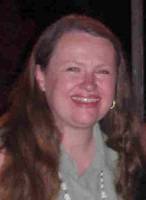Constructionism and Constructivism
Based on these two definitions or explanations I found on the Internet, it seems to me that constructionism is what we do when navigating in multi-modal situations or in creating online activities, while constructivism relates to how we perceive our experiences in the multiliterate or multi-modal environment. For example, constructivism seems to relate to blogging. I think the two frameworks go hand-in-hand in the world of new technologies.
"Constructionism is based on two different senses of "construction." It is grounded in the idea that people learn by actively constructing new knowledge, rather than having information "poured" into their heads. Moreover, constructionism asserts that people learn with particular effectiveness when they are engaged in constructing personally meaningful artifacts (such as computer programs, animations, or robots).
"http://learning.media.mit.edu/mid_projects.php
"Constructivism is a philosophy of learning founded on the premise that, by reflecting on our experiences, we construct our own understanding of the world we live in. Each of us generates our own "rules" and "mental models," which we use to make sense of our experiences. Learning, therefore, is simply the process of adjusting our mental models to accommodate new experiences."
http://www.funderstanding.com/constructivism.cfm


